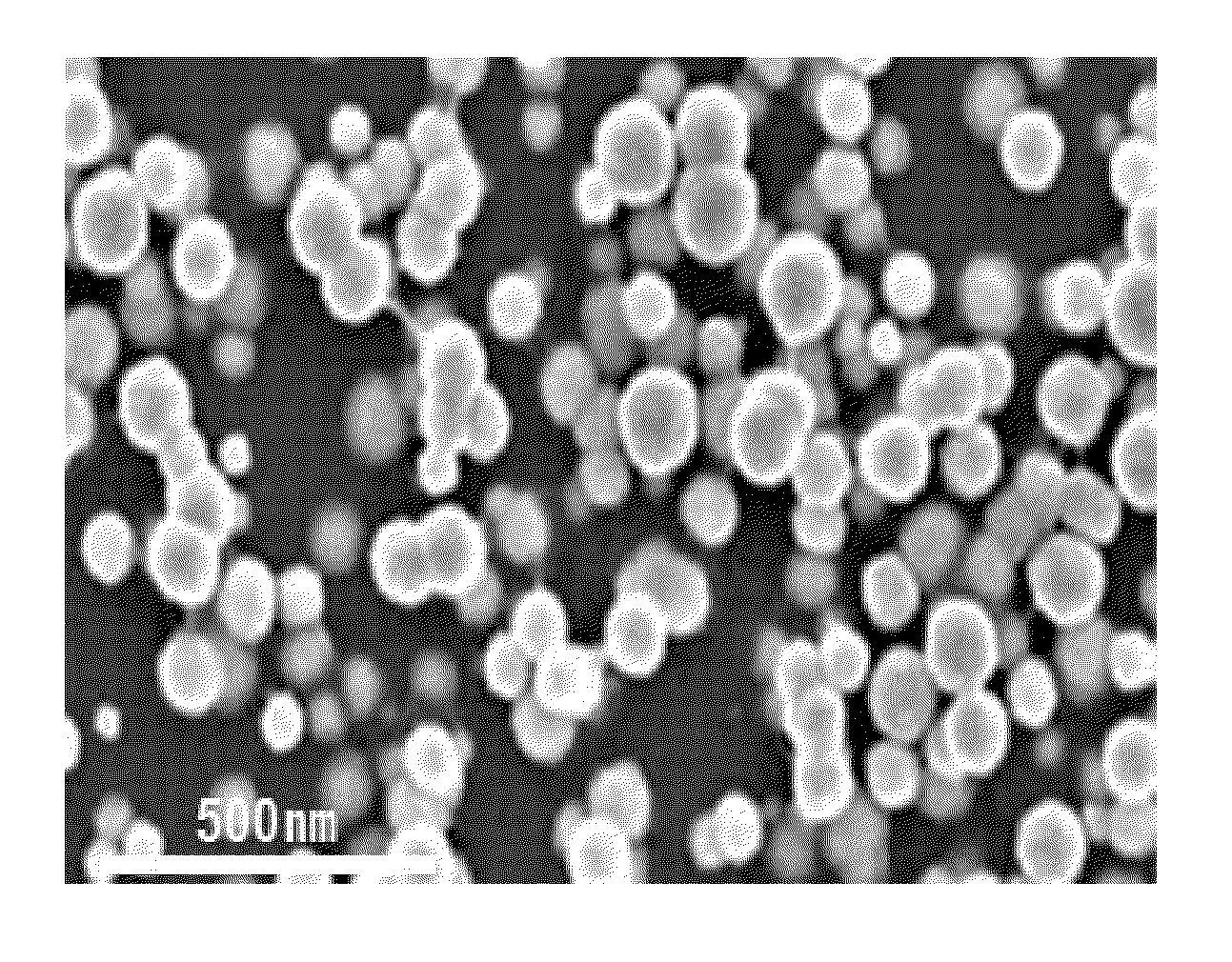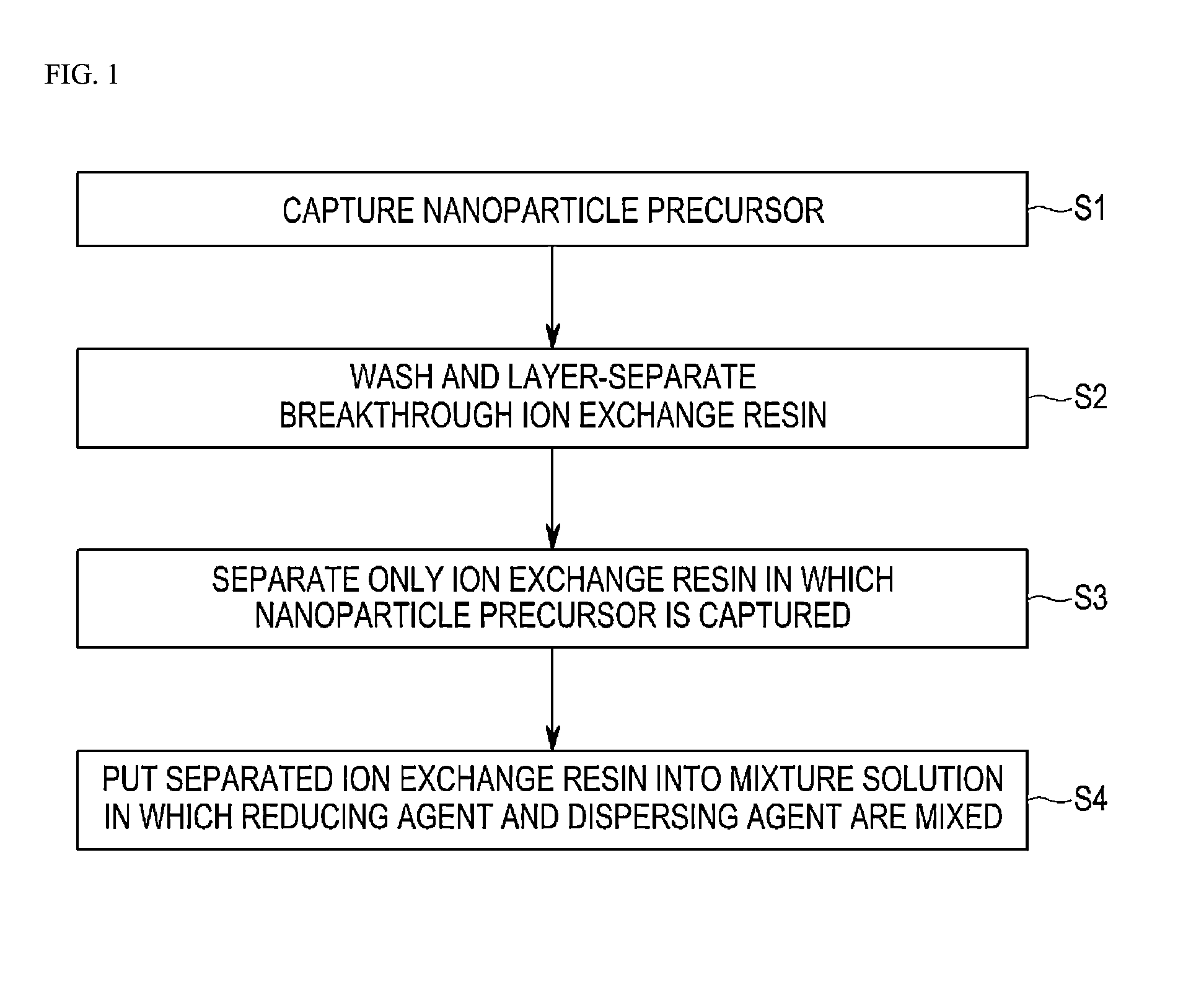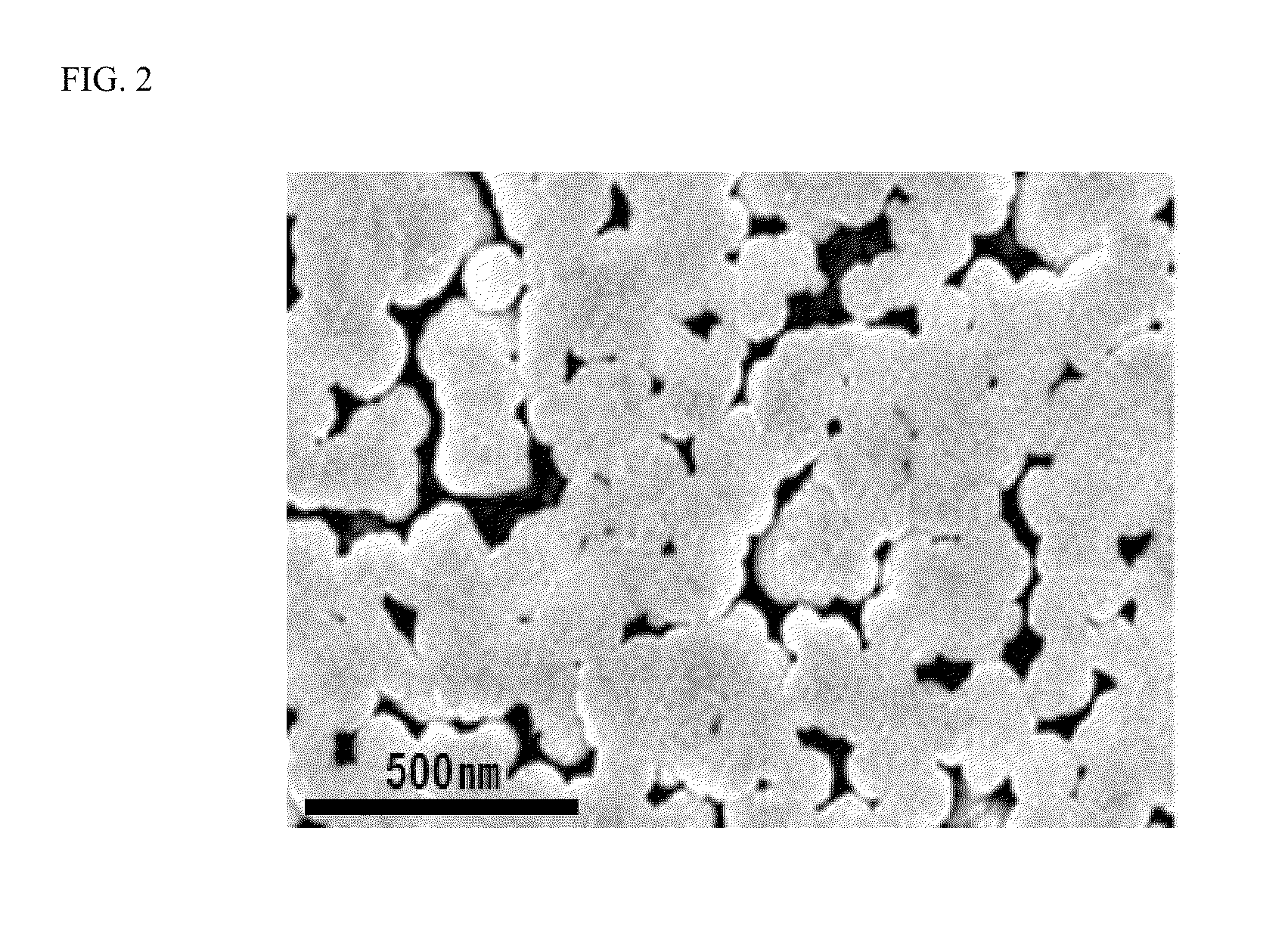Method of manufacturing nanoparticles using ion exchange resin and liquid reducing process
a technology of ion exchange resin and nanoparticles, which is applied in the field of manufacturing nanoparticles using ion exchange resin and liquid reducing process, can solve the problems of high magnetic susceptibility, difficult to adjust the particle size, and inability to produce uniform crystal nuclei, etc., and achieves high yield.
- Summary
- Abstract
- Description
- Claims
- Application Information
AI Technical Summary
Benefits of technology
Problems solved by technology
Method used
Image
Examples
example 1
Manufacture of Pt Nanoparticles
[0050]A 10% Na2Pt(OH)6 solution was diluted to 100 ppm or less using demineralized water. The 10% Na2Pt(OH)6 solution was a solution including impurities such as Li+, Cl−, etc. As the first operation, the Na2Pt(OH)6 solution diluted to 100 ppm or less was injected into an anion exchange resin to capture only anions such as Pt(OH)62−, Cl−, etc. by an ion exchange reaction. As a second operation, the anion exchange resin in which the anions such as Pt(OH)62−, Cl−, etc. were captured was washed using demineralized water to remove impurities remaining in the resin layer. In addition, as a third operation, a resin layer was separated through back washing, and only an anion exchange resin in which R—Pt(OH)62− was captured was separated. As a fourth operation, 0.001 g of R—Pt(OH)62− was injected into a N2H4 solution at an interval of 1 minute. Here, Pt nanoparticles were produced by a reduction reaction, and a concentration of the N2H4 solution as the reducin...
PUM
| Property | Measurement | Unit |
|---|---|---|
| Temperature | aaaaa | aaaaa |
| Pressure | aaaaa | aaaaa |
Abstract
Description
Claims
Application Information
 Login to View More
Login to View More - R&D
- Intellectual Property
- Life Sciences
- Materials
- Tech Scout
- Unparalleled Data Quality
- Higher Quality Content
- 60% Fewer Hallucinations
Browse by: Latest US Patents, China's latest patents, Technical Efficacy Thesaurus, Application Domain, Technology Topic, Popular Technical Reports.
© 2025 PatSnap. All rights reserved.Legal|Privacy policy|Modern Slavery Act Transparency Statement|Sitemap|About US| Contact US: help@patsnap.com



